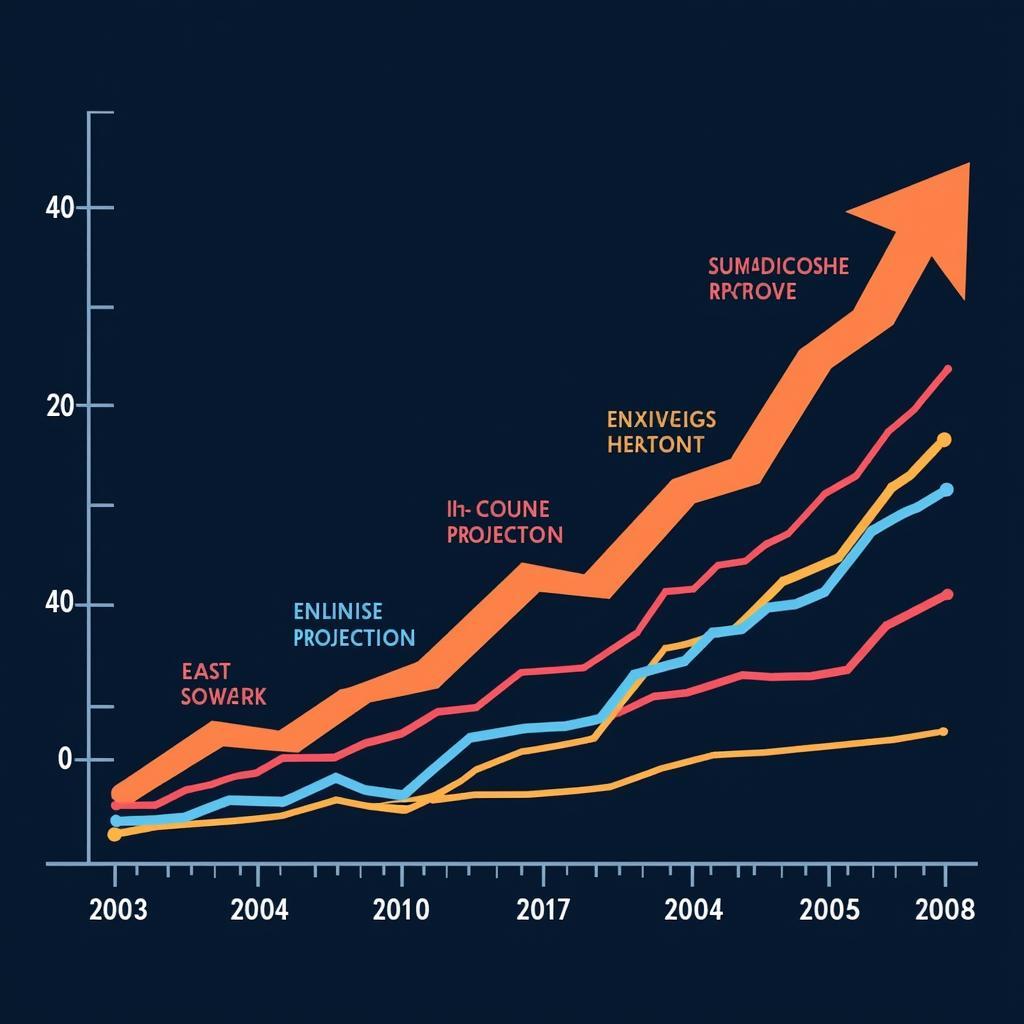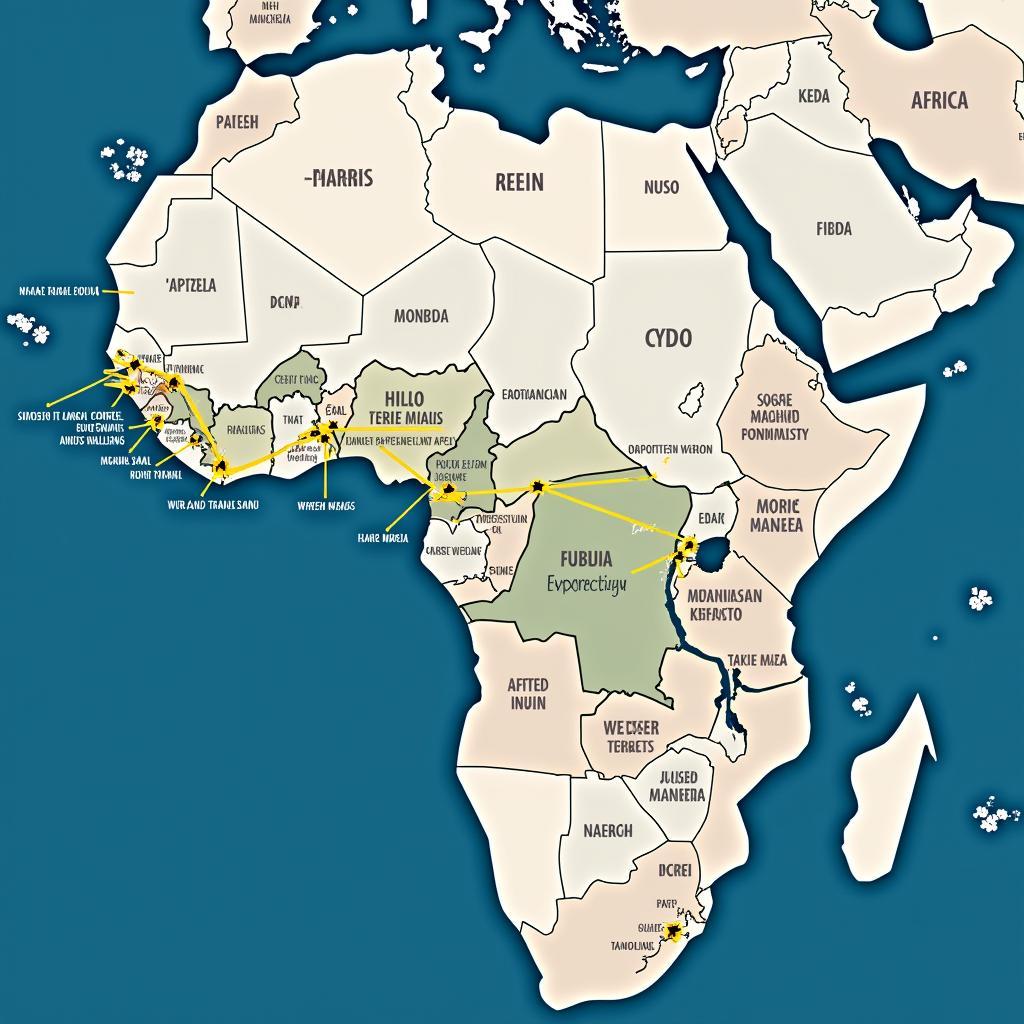Exploring African Financial Markets
African Financial Markets represent a dynamic and evolving landscape, offering unique opportunities and challenges for investors and businesses alike. This article delves into the complexities of these markets, examining their current state, growth potential, and key players. We will explore the factors driving their development, as well as the obstacles that still need to be overcome. After reading this, you’ll have a deeper understanding of the exciting world of African financial markets.
Understanding the Dynamics of African Financial Markets
Africa’s financial landscape is characterized by a diverse range of markets, from established stock exchanges in countries like South Africa and Nigeria to emerging markets in East and West Africa. This diversity reflects the continent’s varied economic structures and levels of development. Key factors influencing these markets include macroeconomic stability, political governance, infrastructure development, and access to technology. Furthermore, the increasing integration of African economies into the global financial system plays a significant role in shaping the trajectory of these markets. You can read more about some African bank reviews.
The growth of African financial markets is driven by several key factors. These include a burgeoning young population, increasing urbanization, and the rise of a middle class with growing disposable income. Moreover, technological advancements, particularly in mobile banking and fintech, are revolutionizing access to financial services and driving financial inclusion across the continent. These trends are creating new investment opportunities and attracting international capital.
 African Stock Market Growth Chart
African Stock Market Growth Chart
Key Players in African Financial Markets
A variety of institutions and organizations play crucial roles in the functioning and development of African financial markets. These include local and international banks, investment firms, regulatory bodies, and development finance institutions. The African Central Bank plays a crucial role in monetary policy. The collaborative efforts of these players are essential for fostering a stable and transparent financial ecosystem. These institutions contribute to market liquidity, provide access to capital, and ensure regulatory oversight.
Navigating the Challenges and Opportunities
While African financial markets hold immense potential, they also face significant challenges. These include limited market depth and liquidity, regulatory hurdles, and capacity constraints. Furthermore, political instability and macroeconomic volatility in certain regions can create uncertainties for investors. Overcoming these challenges is crucial for unlocking the full potential of these markets and attracting greater investment flows. For currency conversions, see what 1 dollar to South African rand is today.
 African Fintech Innovation Landscape
African Fintech Innovation Landscape
What is the future of African Financial Markets?
Despite the challenges, the long-term outlook for African financial markets remains positive. Continued economic growth, coupled with ongoing reforms and technological advancements, is expected to drive further development and integration of these markets. This will create new opportunities for investors seeking diversification and exposure to high-growth economies.
Adedayo Thomas, a renowned economist specializing in African markets, states, “The future of African finance lies in innovation and leveraging technology to bridge the existing gaps and unlock the vast untapped potential.” He further emphasizes the importance of “strengthening regulatory frameworks and promoting transparency to build investor confidence.”
 Integration of African Financial Markets
Integration of African Financial Markets
Another expert, Dr. Fatima Hassan, CEO of an African investment firm, adds, “Investing in African financial markets offers a unique opportunity to participate in the continent’s transformative growth story.”
Conclusion
African financial markets are on an upward trajectory, presenting both exciting opportunities and significant challenges. By understanding the dynamics of these markets, navigating the complexities, and embracing the potential for growth, investors can position themselves to benefit from the continent’s evolving financial landscape. Exploring these markets requires careful consideration of the risks and opportunities, and a long-term perspective is crucial for success in this dynamic environment. The growth of these markets is essential for driving economic development and prosperity across the continent. Don’t miss out on the chance to learn more about 57.51 South African Rand to INR today and the complexities of African currencies. And learn about African airlines by fleet size. African financial markets offer a unique investment opportunity.
FAQ
- What are the main drivers of growth in African financial markets?
- What are the key challenges facing African financial markets?
- What are the major stock exchanges in Africa?
- How can investors access African financial markets?
- What role does technology play in African financial markets?
- What are the regulatory frameworks governing African financial markets?
- What are the prospects for future growth in African financial markets?
Common Scenarios
- Scenario 1: An investor looking to diversify their portfolio considers investing in African financial markets.
- Scenario 2: A business seeks to expand its operations into Africa and needs to understand the local financial landscape.
- Scenario 3: A government agency explores ways to promote financial inclusion and development within its country.
Further Exploration
- Explore the impact of mobile banking on financial inclusion in Africa.
- Research the role of development finance institutions in supporting African financial markets.
- Analyze the performance of different African stock exchanges.
When you need assistance, please contact Phone Number: +255768904061, Email: [email protected] Or visit: Mbarali DC Mawindi, Kangaga, Tanzania. We have a 24/7 customer service team.

